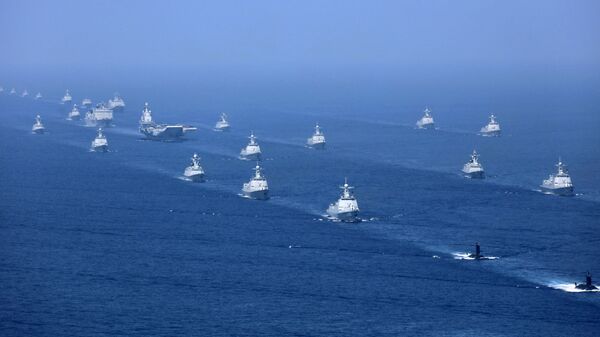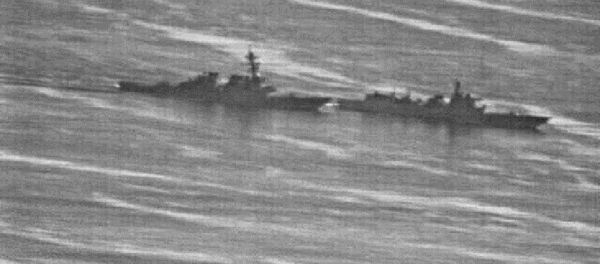Chinese Navy academy researcher Senior Captain Zhang Junshe has reiterated Beijing's position on the matter, insisting that the Asian superpower has the legal right to take any steps to expand its clout in the South China Sea.
Zhang also warned that "if our on-island personnel and installations come under threat in future, then we necessarily will take measures to boost our defensive capabilities".
READ MORE: 'We Will Not Seek Hegemony': Beijing Expects South China Sea Rulebook in 3 Years
Separately, he claimed that the US Navy jeopardises regional security by conducting its "freedom of navigation" missions in areas adjacent to the South China Sea islands.
The comments came after US Vice President Mike Pence claimed in mid-November that the disputed South China Sea "doesn't belong to any one nation".
"[…] You can be sure: the United States will continue to sail and fly wherever international law allows and our national interests demand," Pence said.
Washington has repeatedly accused Beijing of building artificial islands in the South China Sea region and constructing facilities on the contested islands, voicing concerns that they could be used to restrict free movement and broaden Beijing's strategic reach.
READ MORE: WATCH Chinese, US Warships Narrowly Avoid Collision in South China Sea
Apart from "freedom of navigation" operations in the South China Sea, US Air Force bombers sometimes conduct "flyovers". These operations have prompted Beijing, in turn, to urge Washington to stop "actions that undermine China's sovereignty and security interests".
Earlier, Foreign Minister Yang Jiechi stressed that China had "indisputable sovereignty" over the region's disputed Spratly Islands and has the right to build civilian and defence facilities on the territory.
China and six more countries, including Brunei, Indonesia, the Philippines, Malaysia, Vietnam, and Taiwan, have competing claims over parts of the South China Sea, a strategic and economically important waterway through which some $5 trillion in annual global trade passes.
China controls the vast majority of the sea's islands, reefs and shoals, and has built a number of artificial islands in a bid to further shore up its claims.



